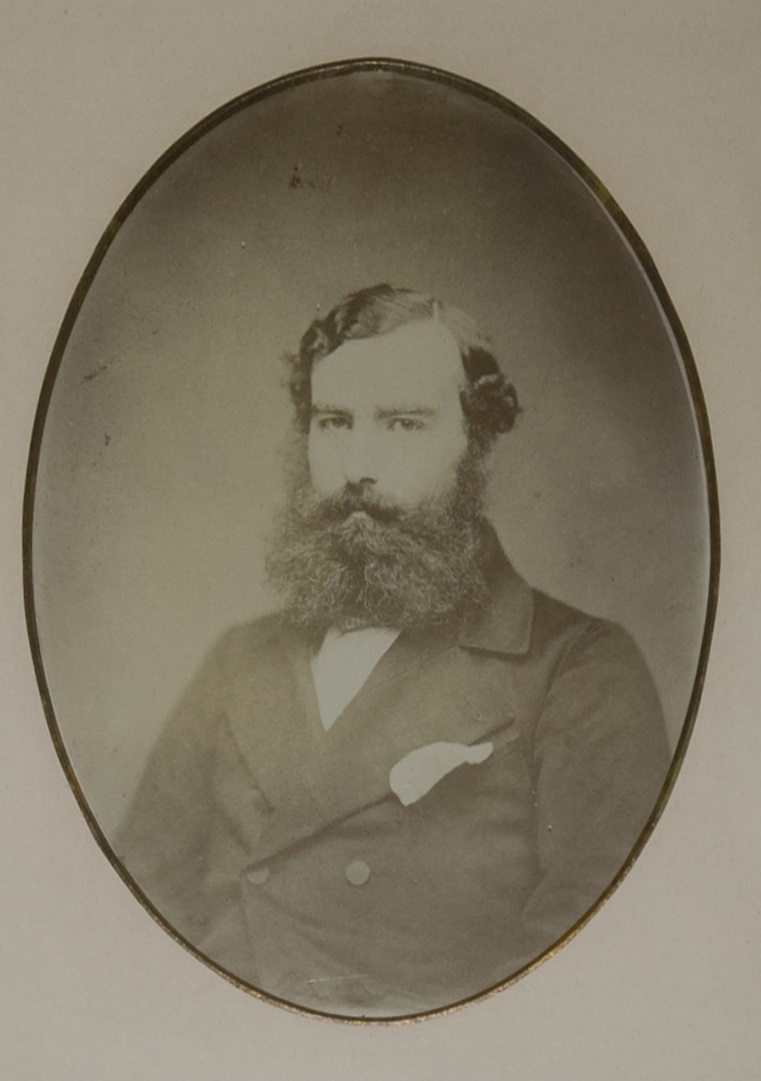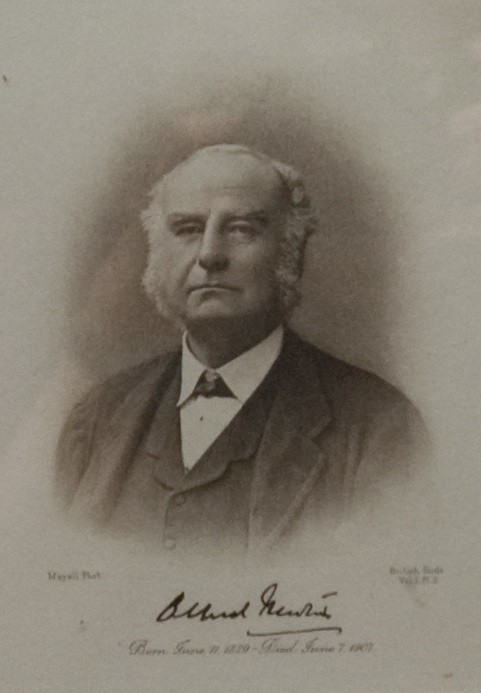Adrian Friday (Corpus Christi 1967) writes:
Everyone who has studied or worked in the Department of Zoology will have experienced something of the legacy of Alfred Newton, its first Professor (of ‘Zoology and Comparative Anatomy’ at the founding of the chair). Newton’s name is perpetuated in the title of the Department’s libraries, the ‘Balfour and Newton Libraries’. Indeed, his portrait hangs on the wall above the entrance to the ‘Newton Room’, so that he will have been a benevolent observer of generations of undergraduates, many of whom may well have been unaware of his significance to the history of the Department.

Newton took up his post as Professor in 1866, and he died in post in 1907. As the occupant of the chair for over 40 years, he has been the longest serving incumbent (so far). The next longest serving holder of the post, (John) Stanley Gardiner, managed only a mere 28 years, and Newton’s immediate successor, the embryologist Adam Sedwick, served for only 2 years. (It was towards the end of Stanley Gardiner’s term that the ‘Comparative Anatomy’ part of the title was dropped.) Not surprisingly, Newton left both intellectual and physical legacies. His physical legacy includes his remarkable collection of books (hence the origin of the Newton Room), a collection of Victorian photographic visiting cards (including those of many of the notable intellectual figures of his time, both scientific and from wider cultural areas), and much material in the Bird Room of the Museum of Zoology (including a large collection of eggs and sterna). It is clear that Newton’s personality had those familiar components of collecting and systematising that often characterise one sort of approach to the natural world.
Newton was the subject of one of those substantial academic biographies, written by A.F.R. Wollaston and published (‘with a Preface by Sir Archibald Geikie’) in 1921, rather late after his death. Geikie, a geologist, was Newton’s near contemporary, and served as President of the Royal Society from 1909. Newton himself was a Fellow of the Royal Society, and received its Royal Medal in 1900 ( a good year for him, in which he also received the Linnean Medal of the Linnean Society of London; a medal that had previously been awarded to T.H. Huxley, Richard Owen, Alfred Russel Wallace and Ernst Haeckel)..
Newton came from a prosperous family, the fortunes of which came largely from West Indian sugar plantations. He was born near Geneva in 1829, when the family was making an extended trip, in the grandish manner, to the Continent. Wollaston’s biography gives details of his childhood and education. It helps in building a mental picture of the man to know that an early childhood accident left him with a limp, and he habitually used a stick to help him in walking. Newton came as an undergraduate to Magdalene College and took his B.A. in 1853. He was already an accomplished and dedicated ornithologist since boyhood, and this was the area of zoology in which he subsequently made his main reputation. Charles Darwin, whom he approached for support, was not the only one of those consulted about Newton’s application for the new Chair of Zoology to feel that he might be too specialised for that role. Once Newton had arrived at Magdalene he stayed, and, indeed, he died there. Since he was born in the reign of William IV and died in the reign of Edward VII, his life enclosed the whole of Victoria’s reign – and he was a quintessential Victorian.
Newton’s closest friend and collaborator, John Wolley, who was an undergraduate at Trinity, was also an ornithologist. After Wolley’s early death in 1859, Newton curated and catalogued Wolley’s extensive collections, and published material based on his friend’s notes. (Wolley’s collections, however, went not to Cambridge, but to the British Museum).
Despite his handicap, Newton travelled widely before his appointment to the Chair of Zoology. His travels included a trip with Wolley to Iceland. Newton’s scientific legacy was substantial, and apart from his ornithological collections, he published the Dictionary of Birds (1893-96) in four volumes. He was one of the founders of the British Ornithologists’ Union and its journal Ibis, and he profited from the presence of his brother, Sir Edward Newton (1832-97) as an administrator in Mauritius and Jamaica. The Museum of Zoology’s famous dodo skeleton, for example, was assembled from bones sent back to Cambridge by brother Edward.

To his great credit, Newton was an immediate and enthusiastic convert to the ideas of Darwin and Wallace, and he spoke robustly in support of them. How different might have been the history of the Department if he had been an opponent of Darwin’s ideas? He was also active in early movements supporting various conservationist causes (although here he did not always get the science right). Despite his activities on behalf of progressive scientific causes, Newton in person was apparently regarded as somewhat old-fashioned in both manner and appearance, sometimes to the point of eccentricity.
Newton did not leave any big biological ideas, but he was a gifted, erudite and active scientist in his field, and a capable manager of the young Department of Zoology.
Alfred Newton inherited wealth from his family. His grandfather owned sugar plantations in the Caribbean which exploited enslaved people. The summary of the Inquiry by the University of Cambridge Advisory Group on the Legacies of Enslavement has been published: Legacies of Enslavement Inquiry. This report marks an important step in the on-going process of understanding the legacies of enslavement in the University. The Department is working with the University to further understand Newton’s legacy.
